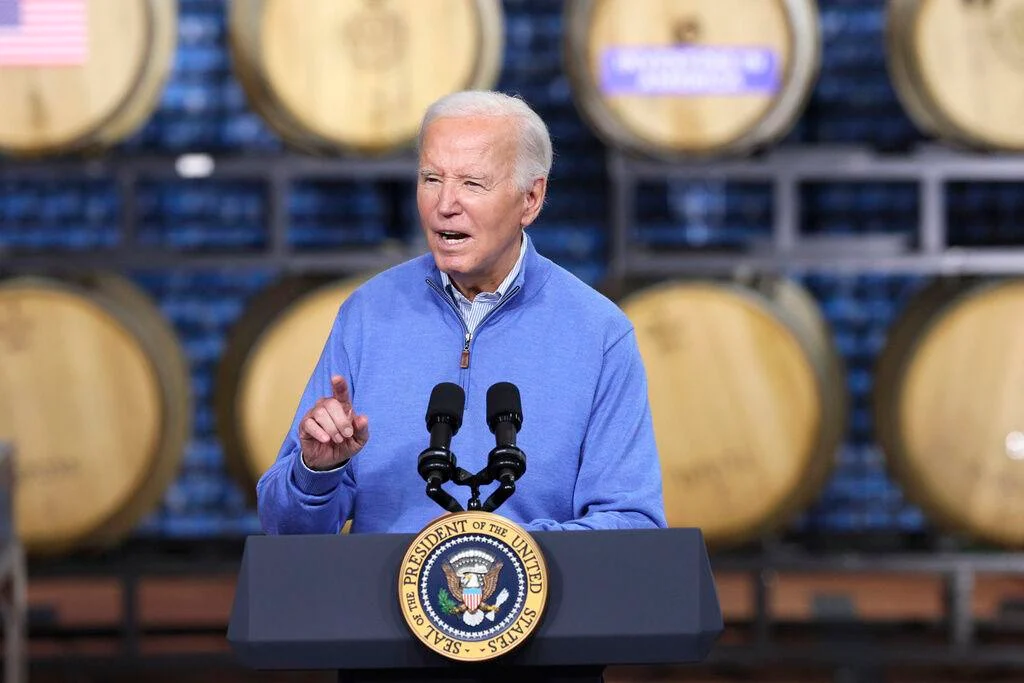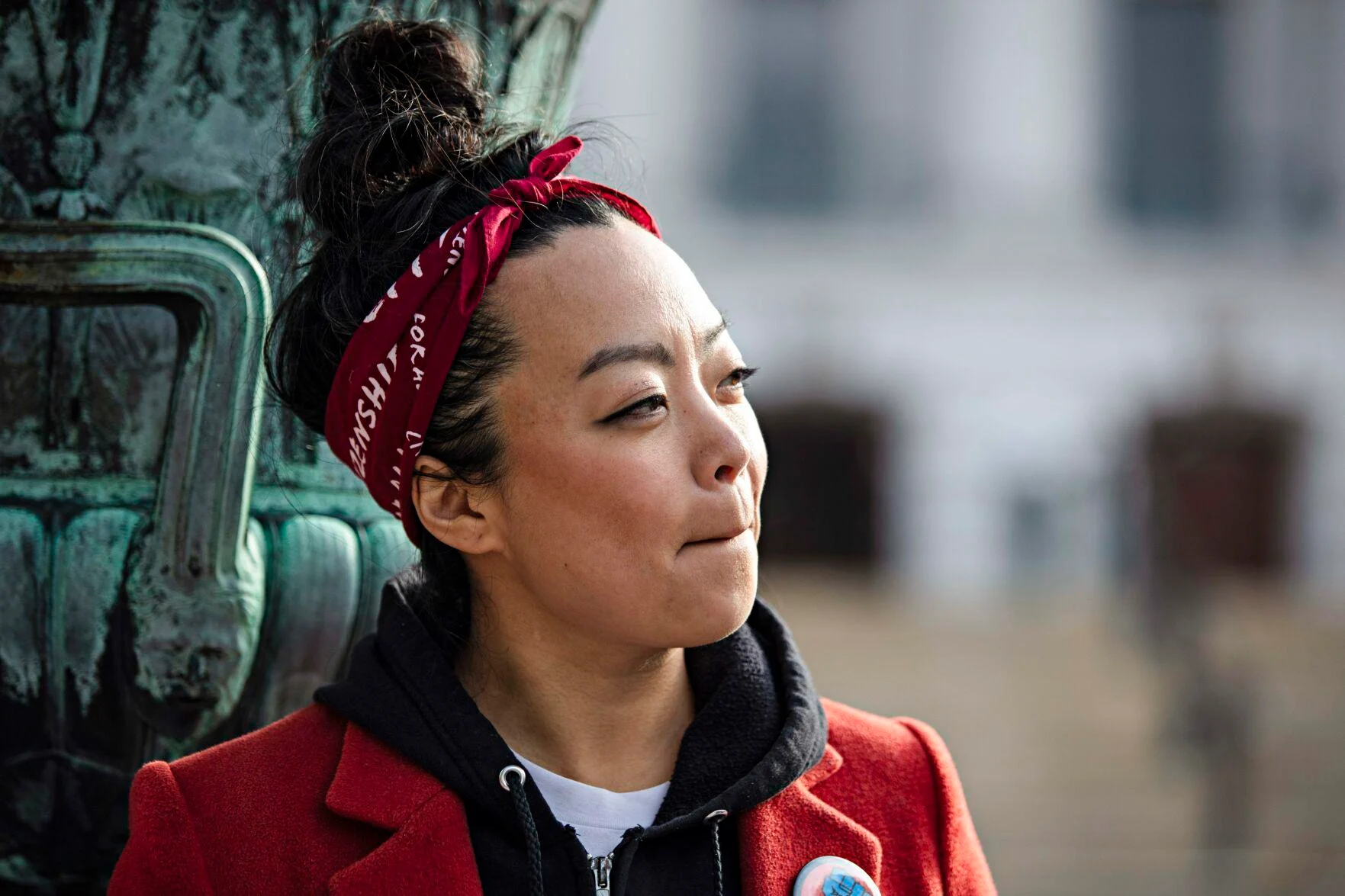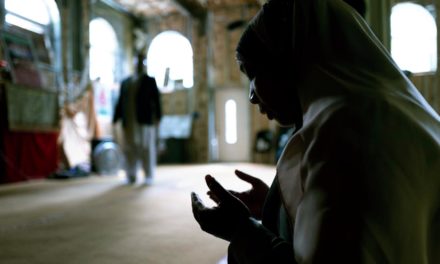Actress Susan Sarandon, center, stands with activists from the group CodePink on Feb. 15 outside the Capitol Hill offices of Rep. Rashida Tlaib, D-Mich., as they advocate for Gaza.
A Wisconsin advocacy group is urging Democratic voters to list themselves as “uninstructed” on the state’s upcoming April presidential primary ballot in protest of President Joe Biden’s handling of Israel’s ongoing war in Gaza.
The move follows a similar campaign in Michigan that ultimately resulted in more than 100,000 Democrats listing themselves as “uncommitted” on the state’s primary ballot last month.
“We are incredibly incensed by the fact that (Biden) has been unequivocally supportive of the genocide against the Palestinian people and the people in Gaza and he continues to arm Israel,” said Janan Najeeb, one of the organizers for Listen to Wisconsin, the group organizing the “uninstructed” campaign. “We know that (the United States is) the main supporter of Israeli armaments, and we could have ended this a long time ago.”
Biden still handily won the Democratic primary in Michigan with more than 618,000 votes, but the “uncommitted” ballot movement garnered enough support to secure two delegates and raises concerns for the fall election, because Biden won Michigan by only about 154,000 votes in the 2020 presidential election.
Biden was, in fact, outvoted by “uncommitted” on the primary ballot in Dearborn and Hamtramck, Michigan, where Arab Americans make up nearly half the population, according to reporting from the Associated Press.
That effort was organized by the group Listen to Michigan. After seeing the success of the campaign in Michigan, Najeeb said she and others felt motivated to launch a similar movement in Wisconsin.
Najeeb said the organization wants to send a message to Biden that his victory in Wisconsin — a critical swing state in the upcoming presidential election — depends on the support of Democratic voters who are displeased by his support of Israel’s military.
“He won by only 20,000 votes in Wisconsin (in 2024) and we know that our numbers, people that are incredibly upset with his policies, we number far more than 20,000,” Najeeb said. “So our goal is to at least get 20,000 people to vote ‘uninstructed’ to send a message that he has abandoned the sense of justice and humanity that we as Americans should stand up for.”
The group made an Instagram post announcing their campaign on Feb. 28. By Monday morning, the post had garnered more than 1,000 likes.
“We are just getting started,” Najeeb said.
The movement is a grassroots effort that Najeeb, who is a founding member of the Milwaukee Muslim Women’s Coalition and was Milwaukee’s 2022 Rotary Person of the Year, describes as multi-racial, multi-generational group of Wisconsin residents.
“It’s a lot of individuals that are really disgusted with Biden’s funding in support of the genocide in Gaza, and they’re saying ‘Enough, we’re not going to be complicit,’” she said.
The death toll of Palestinians in Gaza hit a reported 30,000 last week as the war nears its four-month mark. The Israeli government estimates that about 1,200 Israeli civilians were killed by the Hamas militant group in attacks on Oct. 7. Advocates for a ceasefire in the region are raising the alarm that Israeli’s ongoing missile strikes and ground offensives in Gaza are targeting civilians and amounts to genocide.

Palestinians evacuate wounded people after an Israeli airstrike in Rafah refugee camp, southern Gaza Strip, in October.
The Biden administration has repeatedly defended the United States’ funneling of billions of dollars to Israel’s military, maintaining that the Israeli government has the “right to defend itself.”
But over the weekend Vice President Kamala Harris called for an “immediate ceasefire” — the first time the Biden administration has gone so far in language urging a stop to the ongoing violence. Harris stopped short of calling for a permanent end to the war in Gaza, noting the ceasefire should be “for at least six weeks,” to allow humanitarian aid to reach Palestinian civilians trapped in Gaza.
Israel’s military was widely criticized for opening fire on a group of hundreds of Palestinian civilians trying to reach an aid truck late last week. More than 100 people died and hundreds more were injured.
The U.S. joined Jordan and other countries in air dropping aid into Northern Gaza over the weekend. The United Nations estimates that about 80% of humanitarian aid destined for the northern region of Gaza was blocked by Israel’s military in January.
The Biden administration’s support of Israel has brought about protests calling for Palestinian freedom across the country, including a December march in downtown Madison where hundreds of demonstrators gathered near the state Capitol building to call for a ceasefire and an end to U.S. military aid to Israel.
But the “uncommitted” ballot campaign in Michigan — and the growing campaign here in Wisconsin — has brought about a new form of protest, said Barry Burden, a political science professor at UW-Madison and director of the campus’ Elections Research Center.

President Joe Biden speaks at Earth Rider Brewery on Jan. 25 in Superior.
“It’s an interesting phenomenon that these primaries are happening while this dissension is happening within the ranks of Democratic voters at the same time,” Burden told the Cap Times.
While large groups of voters have cast ballots as “uncommitted” in past primaries — including during former President Barack Obama’s 2012 campaign — the effort in Michigan and the growing movement in Wisconsin remain significant because of the motive behind it, Burden explained.
“I don’t recall protests like this where the vehicle being used is the uncommitted delegates slot,” he said. “What’s happening with Biden is somewhat new that it’s very message specific about one issue.”
The movements won’t necessarily trip up Biden on his way to a presumptive nomination as the Democratic candidate for November’s general election, Burden said, but it sends a strong message.
“It’s a message from Democrats who are displeased with how the administration is handling the conflict in Gaza, who, I think, feel helpless or don’t have other routes for effecting foreign policy,” he said. “There are certainly protests and letter writing and activism online, but voting is more tangible and probably more noticed by a candidate than anything else.”

State Rep. Francesca Hong, pictured here during a union solidarity rally at the Wisconsin State Capitol, was one of 10 Wisconsin lawmakers who sponsored a Senate resolution calling for a ceasefire in Gaza in November of last year. (
Political pushback at the state level to the United States’ ongoing financial backing of Israel’s military during the war has remained scant, especially in Wisconsin. Late last year, a group of 10 Wisconsin lawmakers brought forward a resolution in the Senate calling for a ceasefire in Gaza.
The process of bringing forward such a resolution was “uncomfortable,” given the criticism that the lawmakers behind the resolution received from other members of the Legislature, but was “important” and “an opportunity to learn,” said Madison Democratic Rep. Francesca Hong.
“I think it’s an opportunity to live our values — that in order to create opportunities of comfort for others, leadership needs to be uncomfortable,” Hong said. “And I don’t know how many Democrats have experienced a type of discomfort like this, where we are having to choose — even though we shouldn’t have to choose — who is worthy of more grace, who is a victim, who gets to have their suffering validated or more recognized than others.”
Hong said she remains unsure how she’ll vote in the April primary, but will certainly vote for whomever the Democratic nominee is in November.
“We know that organizing is how we win elections and how we get victories. So, to see a coalition come together, to practice what I see as one of the most important parts of a democracy in organized protests, in the freedom of speech and collective organizing — that’s what I think this movement is doing,” Hong said.
Erin McGroarty joined the Cap Times in May 2023 and covers politics and state government while also investigating disinformation. Originally from Alaska, Erin brings nearly four years of experience covering state politics from the farthest north capitol in the country.














